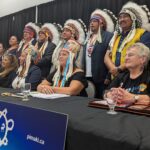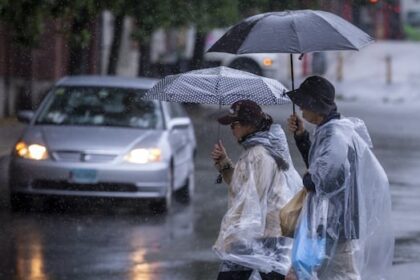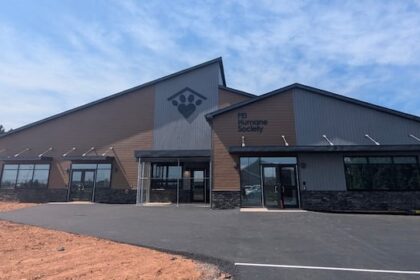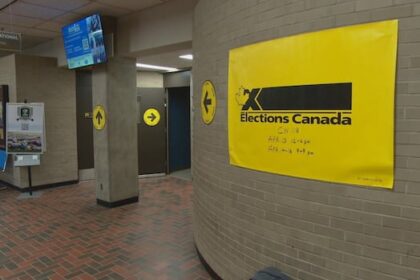As the inquiry into the child welfare system in Labrador continues, witness Apetet Ben Andrew from Sheshatshiu says that the commissioners hearing the evidence must know Innu history to fully understand the impacts of the system that effected his community. “This is why we have to take a much longer review of history, not just talk about the child welfare system otherwise it will be like saying you only need to take the top layer of onion skin off to get the onion but we all know that all the layers of the skin have to be peeled back to reveal the onion” Andrew told the commissioners. Andrew said his parents were forced from their nomadic way of life in the early ‘60s, leaving him and his siblings to be the first generation of Innu to be raised in the village. Andrew said that knowing Innu history is crucial to finding a solution in the inquiry. “The history I was taught was written by Westerners and Europeans, we have no voice in this history, there is no place for our experiences or our telling of the facts of our history but we all know that Innu didn’t just arrive here in the 60’s or 70’s when we became described by white people as the Indian, the Indian problem” The Inquiry Respecting the Treatment, Experiences and Outcomes of Innu in the Child Protection System was set up to hear from Innu about their experiences in the child welfare system, examine cultural impacts and investigate “several” individual cases where children lost their lives. The federal government’s role in the protection system will also be investigated. Sheshatshiu Innu First Nation is located 40 kilometers northeast of Happy Valley-Goose Bay with a population of about 1,300. During his testimony, Andrew referred to chapters from The Jesuit Relations and Allied Documents Travels and Explorations of the Jesuit Missionaries while also sharing his personal experiences. Andrew along with other Innu community members and officials from Indigenous Services Canada will be sharing their testimonies to Commissioners, James Igloliorte, Anastasia Qupee and Mike Devine. The Innu Nation demanded an inquiry in 2022 after six Innu youth in care or following their time spent in care had died, including three deaths by suicide. The inquiry officially launched in May of 2022, including investigations into the deaths of the six youth. Circle hearings for two of the six death investigations have concluded with two more that are planned for November of this year. The commissioners said that since the Inquiry began in May, they have heard from about 100 community members during their eight weeks of meetings with the Sheshatshiu and Natuashish First Nation. “We heard personal, heart rendering and inspiring stories of lived experiences of Innu” Devine said. Innu youth in provincial care were removed from their communities and some out of the province completely. Read More: N.L child protection system part of ongoing colonization, Innu tell inquiry After returning home, the Innu said their youth had lost their culture, language and familial connection. Andrew said colonialism destroyed Innu traditional ways of life. “I continued to seek out Elders who listened to these stories because I had a need to understand why we’re now living so differently then the way earlier generations had for centuries,” he said, “why were these differences so harmful, so widespread effecting all the families not just me and my family.” “We were no longer being raised up immersed in Innu culture, we were immersed in some new and unknown culture of trauma, our healthy Innu ways have been replaced by a powerful processes of the church and education” The final report is expected to be completed and delivered to the Innu Nation, provincial and federal governments by Oct. 31, 2026. Continue Reading
We have no voice: Witness at child welfare inquiry says Innu history must be understood
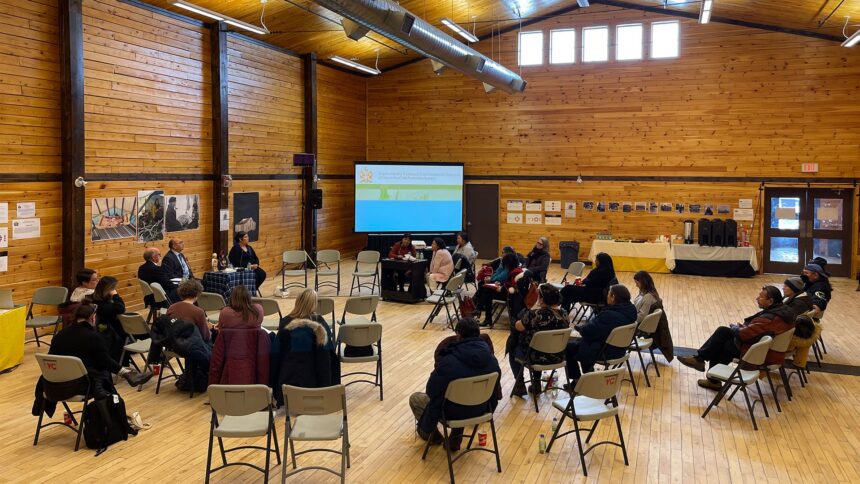
Leave a Comment


